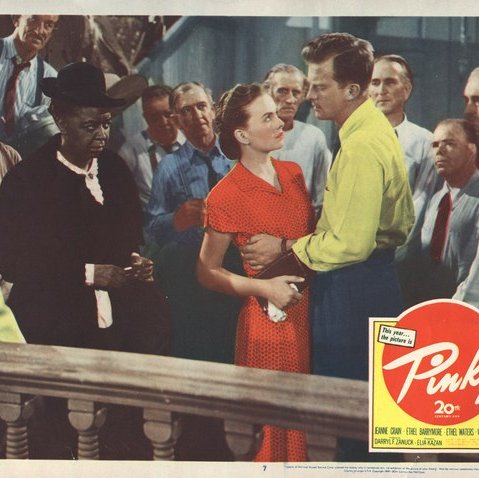Exhibits

Born in Brookhaven, Mississippi, Sumner grew up in Jackson where her father taught at Millsaps College. She received a bachelor's degree from that institution in 1909, and began her writing career only after her four children had started school. Three of her ten novels eventually came to life on the silver screen.
The first of these adaptations was the 1949 film Pinky directed by Elia Kazan. Based on the 1946 novel Quality, the film follows the trials of a mulatto woman named "Pinky." After passing for a white woman at a northern nursing school, Pinky returns home to Mississippi in order to tend her black grandmother. Although Lena Horne campaigned for the starring role, the studio cast Jeanne Crain, a white actress, as "Pinky" to encourage white audience identification with the lead character and also to permit the necessary love scenes with the white boyfriend. This technicality allowed the film to bypass the Hays Code's censorship of interracial intimate contact. The Writers Guild awarded the screenwriters the Robert Meltzer Award honoring screenplays dealing with "problems of the American scene." Crain received an Academy Award nomination for "Best Actress in a Leading Role," while Ethel Waters and Ethel Barrymore received nominations for their supporting roles in the movie. Following Hattie McDaniel in Gone with the Wind, Waters was the second African American woman thus honored.
In 1957, Debbie Reynolds captured the starring role in Tammy and the Bachelor, adapted from Sumner's 1948 novel Tammy out of Time. Leslie Nielsen plays Peter Brent, the aristocratic southern "bachelor" rescued from a plane crash in the Mississippi swamp by Tammy and her grandfather. The romantic comedy proved popular with audiences, and the song "Tammy" received an Oscar nomination for "Best Original Song." Two years later, Sumner published the sequel Tammy, Tell Me True (1959). Sandra Dee starred in the film by the same name in 1961, as well as the film Tammy and the Doctor (1963). Television tried to capitalize on the movie's success with the short-lived Tammy series (1965-66) starring Debbie Watson. The 1967 film Tammy and the Millionaire was the cinematic result of re-editing four episodes of the television series.
